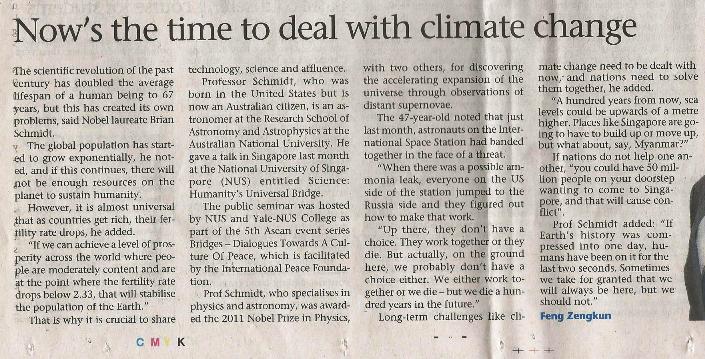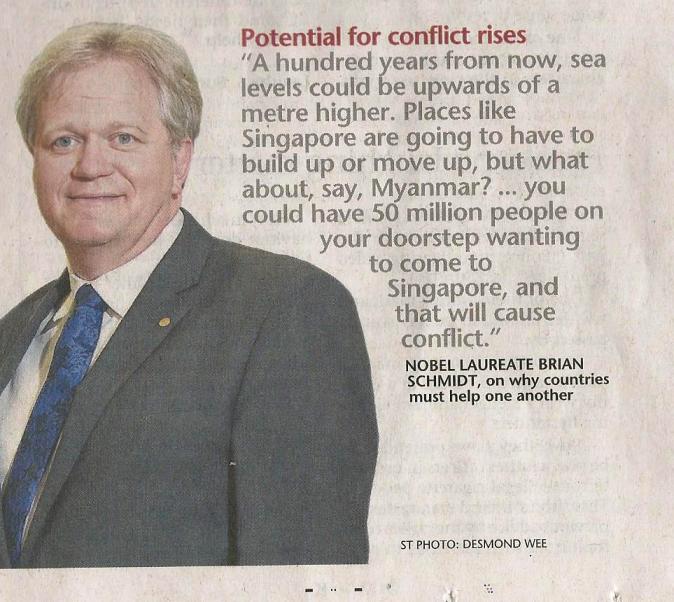|
| |
 |
|
Now's the time to deal with climate change
|
The Straits Times
1 February 2015
The scientific revolution of the last century has doubled the life span of human being to 67 years, but this has created its own problems, said Nobel Laureate Brian Schmidt.
The global population ha started to grow exponentially, he noted, and if this continues there will not be enough resources on the planet to sustain humanity.
However, it is almost universal that as countries get rich, their fertility rate drops, he added.
"If we can achieve a level of prosperity across the world where people are moderately content and are at a point where the fertility rate drops below 2.33, that will stabilise the population of the Earth."
That is why it is crucial to share technology, science and affluence.
Professor Schmidt, who was born in the United States but is now an Australian citizen, is an astronomer at the Research School of Astronomy and Astrophysics at the Australian National University. He gave a talk in Singapore last month at the National University of Singapore (NUS) entitled Science: Humanity's Universal Bridge.
The public seminar was hosted by NUS and Yale-NUS College as part of the 5th Asean event series "Bridges - Dialogues Towards a Culture of Peace", which is facilitated by the International Peace Foundation.
Prof. Schmidt, who specialises in Physics and astronomy, was awarded the 2011 Nobel Prize in Physics, with two others, for discovering the accelerating expansion of the universe through observations of distant supernovae.
The 47-year-old noted that just last month, astronauts in the International Space Station had banded together in the face of a threat.
"When there was a possible ammonia leak, everyone on the US side of the station jumped to the Russia side and they figured out how to make that work."
"Up there, they don't have a choice. They work together or they die. But actualy, on the ground here, we probably don't have a choice either. We work together or wie die - but we die a hundred years in the future."
Long-term challenges like climate change need to be dealt with now, and nations need to solve them together, he added.
"A hundred years from now, sealevels could be upwards of a meter higher. Places like Singapore are going to have to built up or move up, but what about, say, Myanmar?"
If nationsdo not help one another, "you could have 50 million people on your doorstep wanting to come to Singapore and that will cause conflict":
Prof. Schmidt added: "If Earth's history was compressed into one day, humans have been on it for the last two seconds. Sometimes we take for granted that we will always be here, but we should not."


|
|
|
